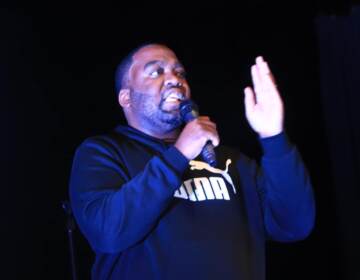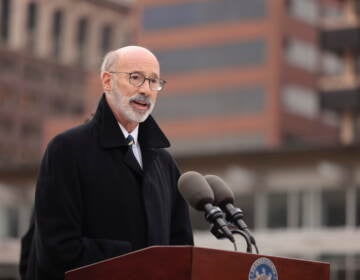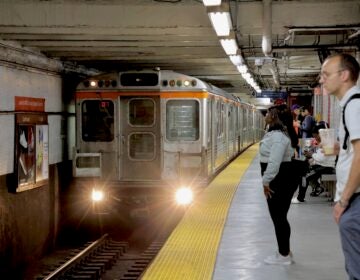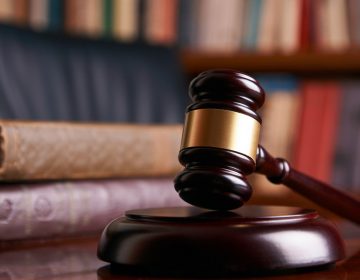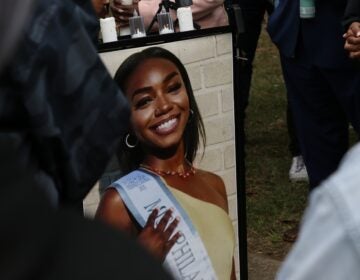Philadelphia releases findings after reviewing over 2,000 shootings in the city
The report examining more than 2,000 shootings confirmed what Philadelphians already know: that the city’s gun violence epidemic overwhelmingly affects Black residents.
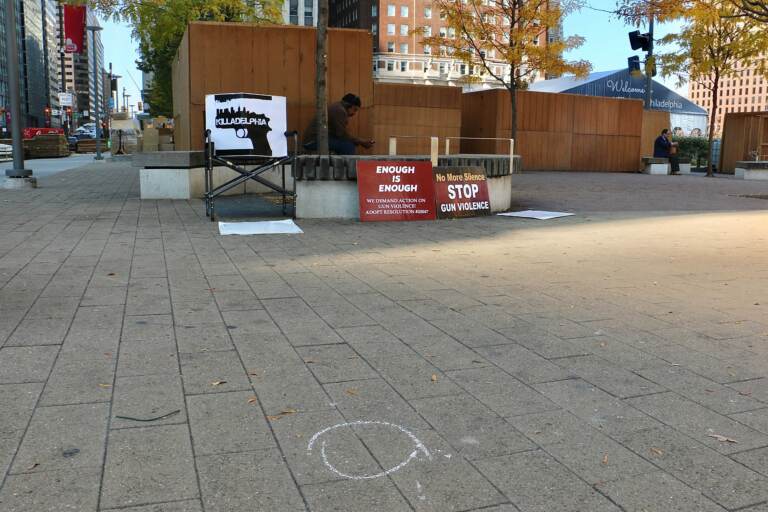
File photo: A chalk circle marks the place where a bullet casing landed during a fatal shooting in LOVE Park. (Emma Lee/WHYY)
A new report examining more than 2,000 shootings in Philadelphia has confirmed what community members already know all too well: that the city’s gun violence epidemic overwhelmingly affects Black residents, especially young Black men.
On Thursday, city officials released the report’s key findings and recommendations for dealing with the gun violence crisis.
The findings were part of a multi-agency report by the 100 Shooting Review Committee, which in September 2020 announced it would examine 100 shootings in Philadelphia.
“We created the 100 Shooting Review Committee to examine the root causes of gun
violence and make recommendations for how to proceed in addressing them. Due to the increasing rates of crime, we expanded the Committee’s purview to examine 2,000+ shootings,” councilmember Curtis Jones writes in the report’s introduction.
At just under 200 pages, the report found that those most affected are people who have previously been traumatized by high levels of violence growing up. It found that since 2015, more than 80% of shooting victims and 79% of those arrested for shootings have been Black.
The report comes at the end of 2021, which saw more than 500 people murdered in the city, and many more people who were shot, but survived their injuries.
“It is clear we are sitting at a crossroads of crisis,” wrote Jones in a statement.
Kisha Hudson, Philly’s new chief public defender, said that not only is gun violence a public health crisis, it is a racial justice emergency.
“We know that the victims and arrestees are overwhelmingly people of color, with young Black men at the risk, most at risk of being murdered. The policy decisions we make today almost exclusively impact people of color and their families,” she said.
State Sen. Vincent Hughes said the report details how Philadelphia is paying the price for ineffective anti-violence efforts.
“The city of Philadelphia is paying the cost for state gun laws that are not relevant to the reality that exists in Philadelphia,” he said, adding that funds should be prioritized for community based organizations as the city grapples with state gun laws he says have proven ineffective.
A week ago, Hughes, joined by Gov. Tom Wolf, announced a more than $15 million increase in state funding to support gun violence prevention efforts, which would go towards community violence prevention grant programs. Yesterday, it was announced that half of those funds would go to community groups in Philadelphia.
But Hughes said that the $15 million isn’t enough to effectively deal with the gun violence across the state and Philadelphia. He hinted that the state will soon announce millions in surplus funds, and that they should be allocated in a similar way.
“That money deserves to be in communities and neighborhoods to invest in these neighborhood based organizations, to give the commissioner what she needs to give the D.A. what he needs to give the public defenders,” Hughes said.
In the report, city and state leaders agreed there is no single or universal solution to address the findings. Each of the more than 2,000 cases studied were complex and varied, and so are the solutions, the report said.
“Addressing the gun violence crisis requires a comprehensive strategy with elements of
enforcement, intervention, and prevention to achieve both short-term and long-term
reductions in gun crimes,” the report reads.
District Attorney Larry Krasner said moving forward, the city needs to invest more in trauma-informed efforts to restabilize hard-hit neighborhoods.
“This city was pretty good at taking resources out of those places, destabilizing them and getting them to the point where we have so much harm, “Krasner said. “We should all be pretty good at putting resources back.”

Show your support for local public media
WHYY is your source for fact-based, in-depth journalism and information. As a nonprofit organization, we rely on financial support from readers like you. Please give today.



